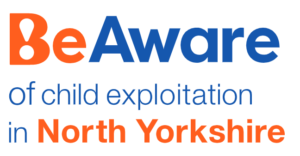
Modern Slavery & Child Trafficking
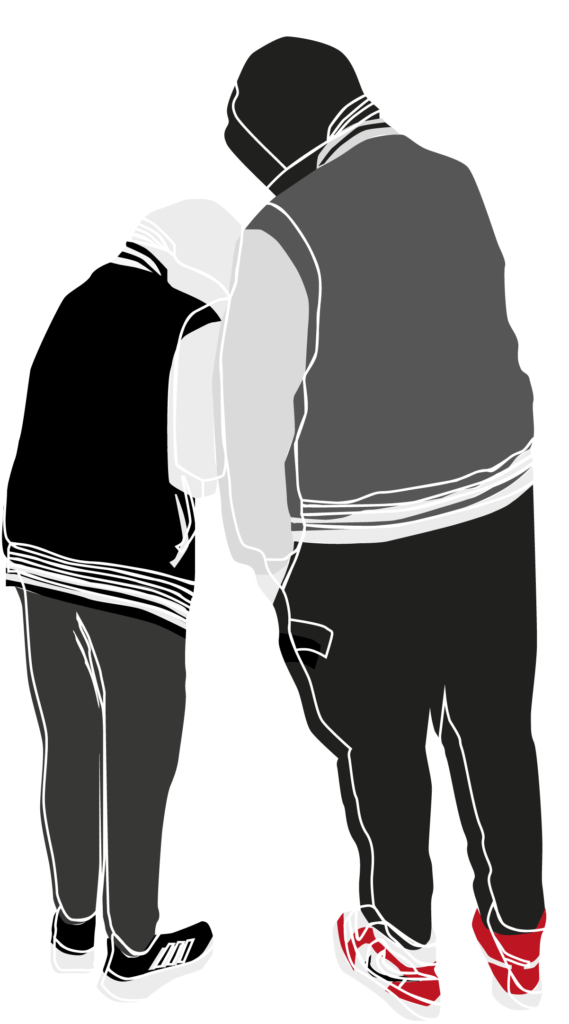
Modern Slavery and Child Trafficking are types of child abuse. Many children and young people are trafficked into the UK from other countries. Child Trafficking also takes place when a child is taken from one area in the country to another. This is a common feature with Organised Crime Groups exploiting children to carry out crimes such as drug dealing as part of County Lines.
Modern Slavey Toolkit:
This Modern Slavery Toolkit has been developed to equip all partner organisations, and First Responders across North Yorkshire and the City of York, to recognise modern slavery and/or human trafficking, and report concerns about a child, young person, or adult at risk, who is at risk of, or is being exploited or trafficked, and to respond appropriately.
First Responders will report modern slavery via the National Referral Mechanism (NRM) which will assist the person’s access to support, such as recovery and reflection period of at least 45 days, safe accommodation, assistance and advice.
This document is produced in partnership with North Yorkshire and the City of York, Modern Slavery group.
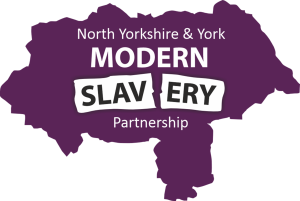
Trafficking as an approach to exploitation
Trafficking is where a child is tricked, forced or persuaded to leave their homes and is moved or transported and then exploited, forced into sexual abuse, commit a crime, work or sold. Children are trafficked for:
- sexual and criminal exploitation
- benefit fraud
- forced marriage
- domestic slavery, like cleaning, cooking and childcare
- forced labour in factories or agriculture
- committing crimes, like begging, theft, working on cannabis farms or moving drugs.
In 2019, BBC London produced a short clip to raise awareness of the links between Child Trafficking and County Lines:
Traffickers, as with sexual and criminal exploitation, will often groom children, families and communities to gain their trust. They may also threaten families with violence or threats.
Trafficking is also an economic crime. Traffickers may ask families for money for providing documents or transport, and they’ll make a profit from the money a child “earns” through exploitation, forced labour or crime. They’ll often be told this money is to pay off a debt they or their family “owe” to the traffickers
Traffickers may:
– work alone or in small groups, recruiting a small number of children, often from areas they know and live in.
– be medium-sized groups who recruit, move and exploit children and young people on a small scale.
– be large criminal networks that operate internationally with high-level corruption, money laundering and a large number of victims.
It may not be obvious that a child has been trafficked but you might notice unusual or unexpected things, such as:
– spend a lot of time doing household chores
– rarely leave their house or have no time for playing
– be orphaned or living apart from their family
– live in low-standard accommodation
– be unsure which country, city or town they’re in
– can’t or are reluctant to share personal information or where they live
– not be registered with a school or a GP practice
– have no access to their parents or guardians
– be seen in inappropriate places like brothels or factories
– have money or things you wouldn’t expect them to
– have injuries from workplace accidents
– give a prepared story which is very similar to stories given by other children
The National Referral Mechanism (NRM)
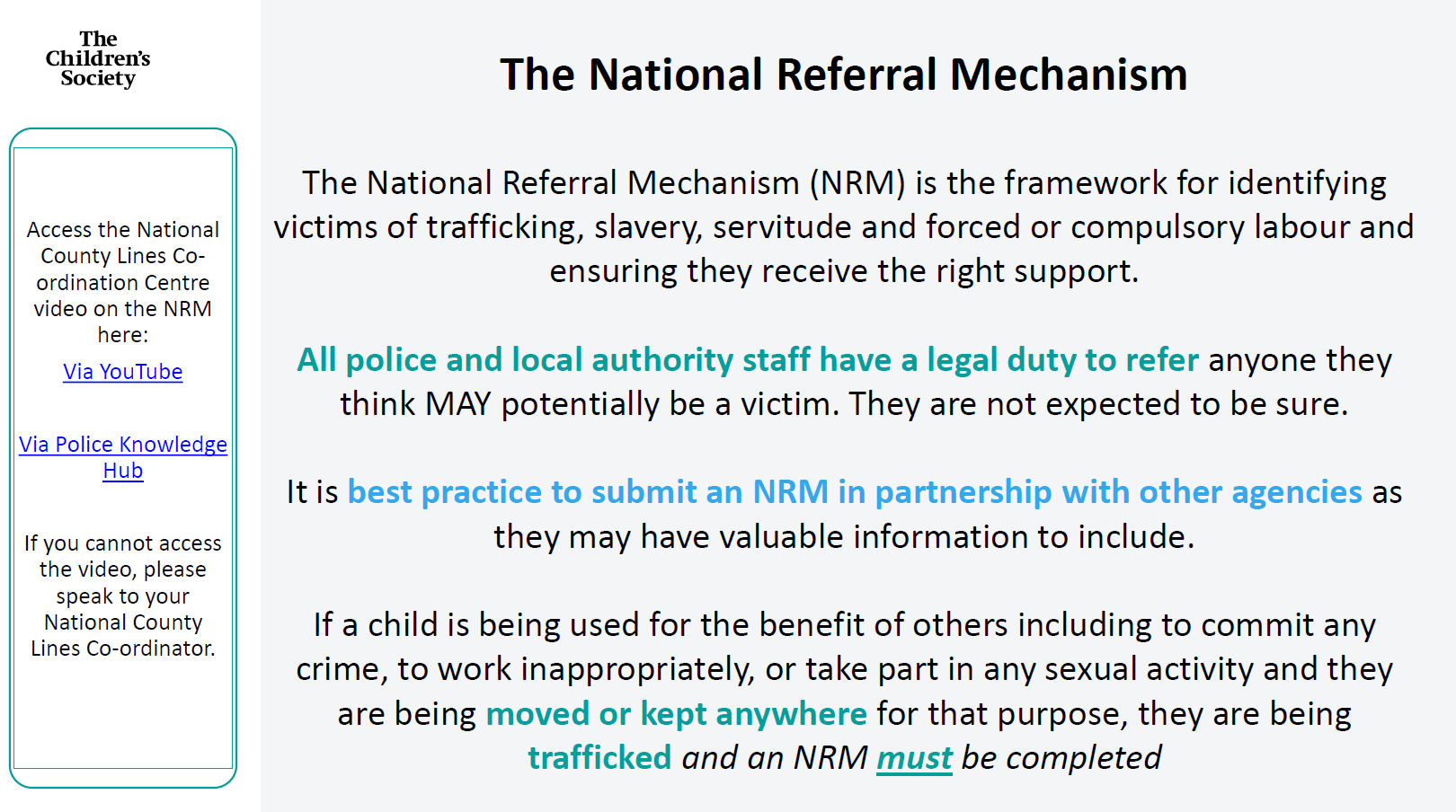
For further information on the NRM view the NRM Guidance.
Understanding the National Referral Mechanism: primary school children – GOV.UK
Understanding the NRM: A guide for Primary School Aged Children
National Referral Mechanism child to adult transition – GOV.UK
Information Pack for Young People in the NRM Turning 18
Understanding the National Referral Mechanism: secondary school children – GOV.UK
Understanding the NRM: A guide for Secondary School Aged Children
If you are a first responder for Modern Slavery to submit an NRM view the Online Reporting Form.
You can still report modern slavery if you’re not a first responder. Call the modern slavery helpline on 0800 0121 700 or report it online.
Cuckooing
What is cuckooing?
Cuckooing is named after the nest-stealing practice of wild cuckoos. It is a form of criminal exploitation where vulnerable people are conned, coerced, controlled, or intimidated into sharing, providing or offering up their accommodation to criminals, who then use it to base their criminal activity.
Such activity may include using the property:
- To deal, store or take drugs (this is the most common)
- As a place to sleep
- To store cash, weapons, valuables or other items (such as CCTV equipment)
- For sex work
Perpetrators may also take over the property to financially abuse the tenant.
Preventing and Disrupting Cuckooing Victimisation: Professional Toolkit. The following resources have been produced by the Cuckooing research and prevention network at the University of Leeds and are designed to improve awareness of cuckooing victimisation, encourage professional and public curiosity, and improve reporting and intervention.
Information Booklet For Professionals
Cuckooing Risk Identification Tool
The Cuckooing Safeguarding Process
Further tools, presentations and research from the group can be accessed here: Preventing and Disrupting County Lines ‘Cuckooing’ Victimisation | School of Law | University of Leeds
Where to go for further information and support?

Modern Slavery Helpline (MSH) and Resource Centre provide a means for victims, the public, statutory agencies and businesses to report concerns and get help and advice. MSH is fully independent and free to call on 08000 121 700, submit reports online or spot the signs of modern slavery and report concerns using the free Unseen App.
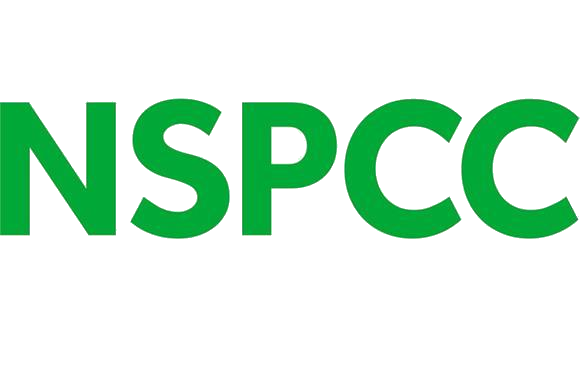
The NSPCC has a wide range of useful information about child trafficking:
- What Child Trafficking is
- Types of Child Trafficking
- Signs of Child Trafficking
- Effects of Child Trafficking
- Who’s at risk
- Support for children
- Report Child Trafficking
Page Reviewed: January 2025


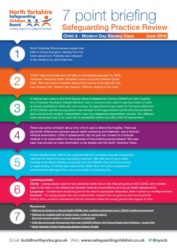
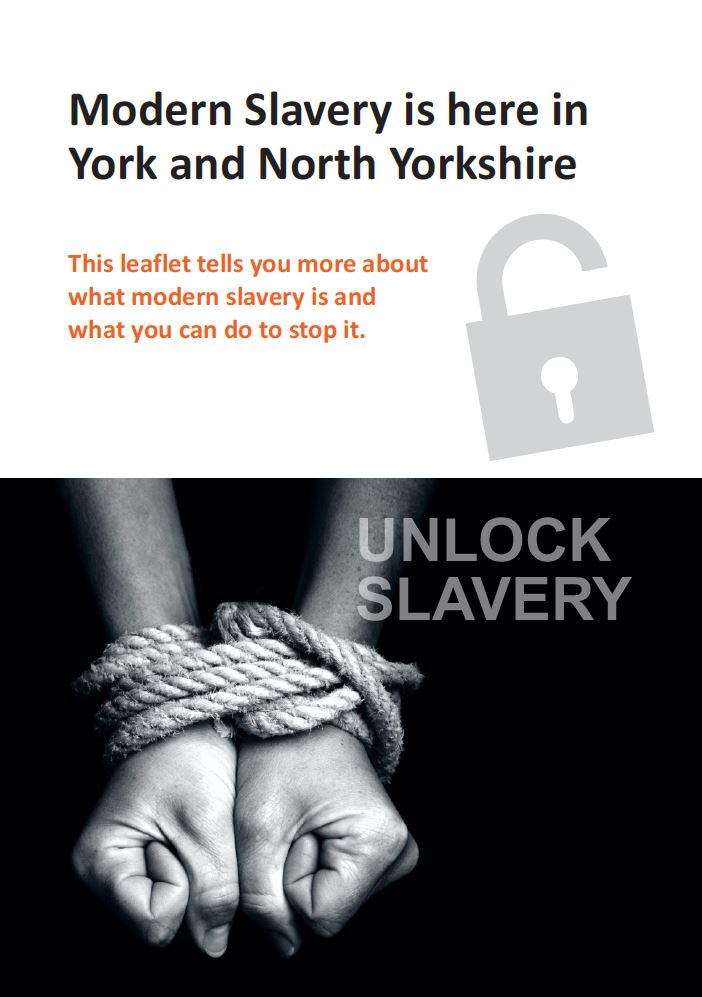

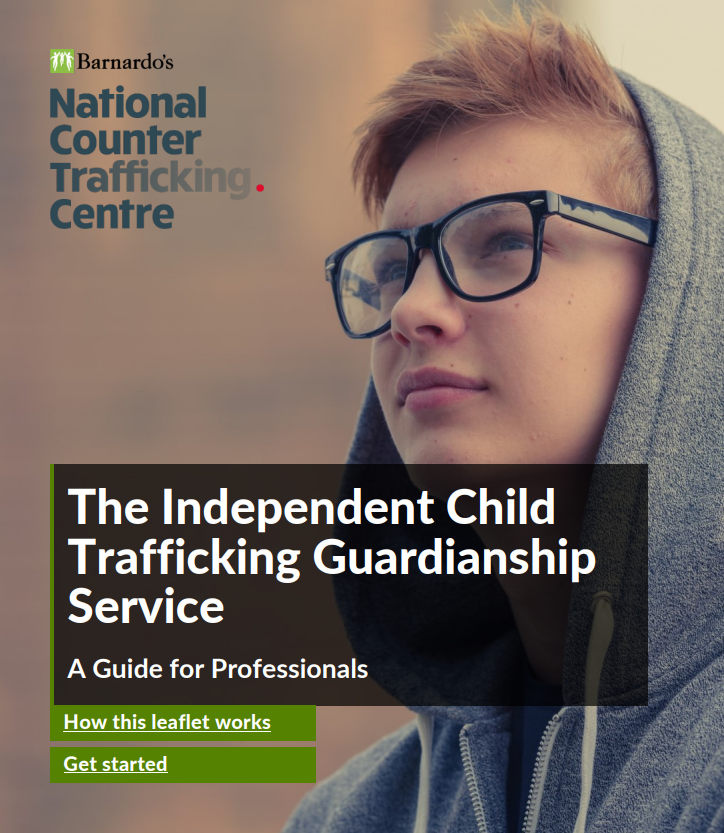
 View all our Resources
View all our Resources



 View all our news
View all our news